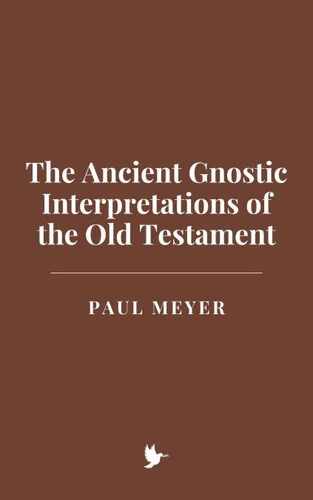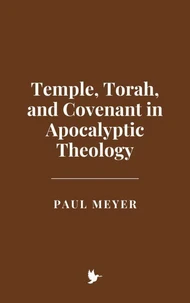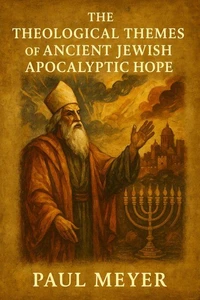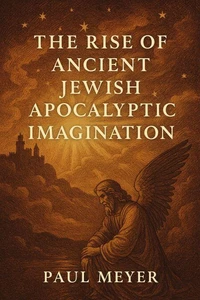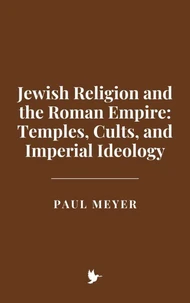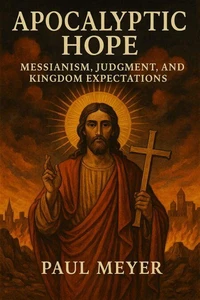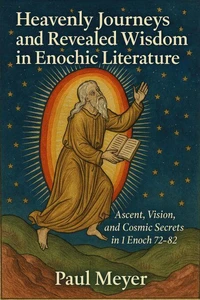The Ancient Gnostic Interpretations of the Old Testament
Par :Formats :
Disponible dans votre compte client Decitre ou Furet du Nord dès validation de votre commande. Le format ePub est :
- Compatible avec une lecture sur My Vivlio (smartphone, tablette, ordinateur)
- Compatible avec une lecture sur liseuses Vivlio
- Pour les liseuses autres que Vivlio, vous devez utiliser le logiciel Adobe Digital Edition. Non compatible avec la lecture sur les liseuses Kindle, Remarkable et Sony
 , qui est-ce ?
, qui est-ce ?Notre partenaire de plateforme de lecture numérique où vous retrouverez l'ensemble de vos ebooks gratuitement
Pour en savoir plus sur nos ebooks, consultez notre aide en ligne ici
- FormatePub
- ISBN8230387077
- EAN9798230387077
- Date de parution04/02/2025
- Protection num.pas de protection
- Infos supplémentairesepub
- ÉditeurIndependently Published
Résumé
This book offers a comprehensive exploration of Ancient Gnostic interpretations of the Old Testament, delving into the ways in which Gnostic thinkers and texts reframe the traditional biblical narratives. Through an in-depth analysis of key Gnostic concepts such as gnosis (hidden knowledge), the Demiurge (the false creator god), and the dualistic nature of the material and divine realms, the book reimagines the foundational stories of the Old Testament.
Key figures such as Adam, Noah, Abraham, Moses, and the prophets are examined through a Gnostic lens, offering radical reinterpretations of their roles in the cosmic struggle between ignorance and enlightenment. The book further explores the role of female figures in Gnostic thought, including Sophia, the divine embodiment of wisdom, and Mary Magdalene, who is presented as a leader and spiritual guide in early Christian Gnostic texts.
By analyzing a wide array of Gnostic scriptures, including the Apocryphon of John, the Gospel of Thomas, and the Gospel of Mary, the book brings to light the significant theological and philosophical contributions of Gnosticism to early Christian and mystical traditions.
Key figures such as Adam, Noah, Abraham, Moses, and the prophets are examined through a Gnostic lens, offering radical reinterpretations of their roles in the cosmic struggle between ignorance and enlightenment. The book further explores the role of female figures in Gnostic thought, including Sophia, the divine embodiment of wisdom, and Mary Magdalene, who is presented as a leader and spiritual guide in early Christian Gnostic texts.
By analyzing a wide array of Gnostic scriptures, including the Apocryphon of John, the Gospel of Thomas, and the Gospel of Mary, the book brings to light the significant theological and philosophical contributions of Gnosticism to early Christian and mystical traditions.
This book offers a comprehensive exploration of Ancient Gnostic interpretations of the Old Testament, delving into the ways in which Gnostic thinkers and texts reframe the traditional biblical narratives. Through an in-depth analysis of key Gnostic concepts such as gnosis (hidden knowledge), the Demiurge (the false creator god), and the dualistic nature of the material and divine realms, the book reimagines the foundational stories of the Old Testament.
Key figures such as Adam, Noah, Abraham, Moses, and the prophets are examined through a Gnostic lens, offering radical reinterpretations of their roles in the cosmic struggle between ignorance and enlightenment. The book further explores the role of female figures in Gnostic thought, including Sophia, the divine embodiment of wisdom, and Mary Magdalene, who is presented as a leader and spiritual guide in early Christian Gnostic texts.
By analyzing a wide array of Gnostic scriptures, including the Apocryphon of John, the Gospel of Thomas, and the Gospel of Mary, the book brings to light the significant theological and philosophical contributions of Gnosticism to early Christian and mystical traditions.
Key figures such as Adam, Noah, Abraham, Moses, and the prophets are examined through a Gnostic lens, offering radical reinterpretations of their roles in the cosmic struggle between ignorance and enlightenment. The book further explores the role of female figures in Gnostic thought, including Sophia, the divine embodiment of wisdom, and Mary Magdalene, who is presented as a leader and spiritual guide in early Christian Gnostic texts.
By analyzing a wide array of Gnostic scriptures, including the Apocryphon of John, the Gospel of Thomas, and the Gospel of Mary, the book brings to light the significant theological and philosophical contributions of Gnosticism to early Christian and mystical traditions.

